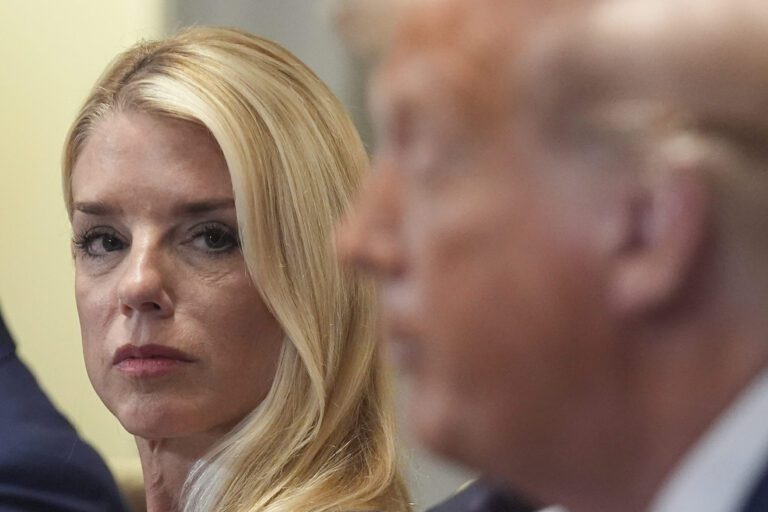Trump Backs Attorney General’s Controversial "Hate Speech" Remarks Amid Backlash
In a recent unfolding controversy, President Donald Trump has seemingly endorsed Attorney General Pam Bondi’s assertion that the Department of Justice (DOJ) can prosecute individuals for "hate speech." This comment comes in the wake of the assassination of conservative commentator Charlie Kirk, igniting heated reactions across the political landscape.
Attorney General Bondi’s Stance on Hate Speech
On Monday, Attorney General Bondi declared that the DOJ “will absolutely target” individuals who engage in hate speech. Her remarks, however, drew significant ire from conservative commentators and First Amendment advocates who see her stance as an infringement on free speech. Following the backlash, Bondi attempted to clarify her position, stating that the DOJ would focus on speech that "crosses the line into threats of violence."
Key Takeaways from Bondi’s Statement
- Targeting Hate Speech: Bondi indicated the DOJ’s readiness to pursue those disseminating hate speech.
- Clarification Post-Backlash: She later emphasized that only speech involving threats of violence would be prosecuted.
Trump’s Response: A Remark on Journalists
When pressed about Bondi’s comments during a press briefing, President Trump added fuel to the fire.
- Targeting ABC Journalists: In an unexpected jab, Trump suggested that Bondi might go after ABC News journalist Jonathan Karl, stating, "Because you treat me so unfairly. It’s hate. You have a lot of hate in your heart."
- Financial Resentment: Trump also reminded audiences that ABC News had previously paid him $16 million for a form of "hate speech," hinting that the network could face consequences under Bondi’s proposed measures.
Reaction from Conservatives and Lawmakers
The conservative commentariat has largely criticized Bondi’s stance, framing it as an attack on First Amendment rights. Notable reactions include:
- Congressman Thomas Massie: He argued that "hate speech" is a term misused by those in power to silence dissent.
- Congressman Chip Roy: He labeled the concept of "hate speech" as a tool of tyrants, suggesting it is contrary to conservative values.
Legislative Responses and Future Implications
In light of Kirk’s assassination, discussions have emerged in Congress on how to tackle individuals or institutions that celebrate political violence.
Key Legislative Proposals
- Derrick Van Order’s Bill: A proposal to prevent federal funding for organizations employing individuals who condone political violence.
- Nancy Mace’s Appeal: A call to the education secretary to cut federal funding from educational institutions that fail to discipline personnel justifying acts of violence.
The Bigger Picture: Political Climate Post-Assassination
The assassination of Charlie Kirk has led to intense scrutiny of the rhetoric surrounding political discourse in America. Trump’s administration appears focused on "uprooting" networks they deem responsible for fostering political violence, as suggested by his homeland security advisor, Stephen Miller.
Actions Being Considered
- Dismantling Non-Governmental Networks: Discussions are underway to address organized riots and campaigns of dehumanization.
- Ensuring Accountability in Educational Institutions: Lawmakers aim to enforce strict penalties for those endorsing violence.
As the debate around "hate speech" intensifies, the implications for free speech and political expression remain significant. For ongoing updates on these developments, follow ABC News and engage with discussions on platforms advocating for First Amendment rights.


